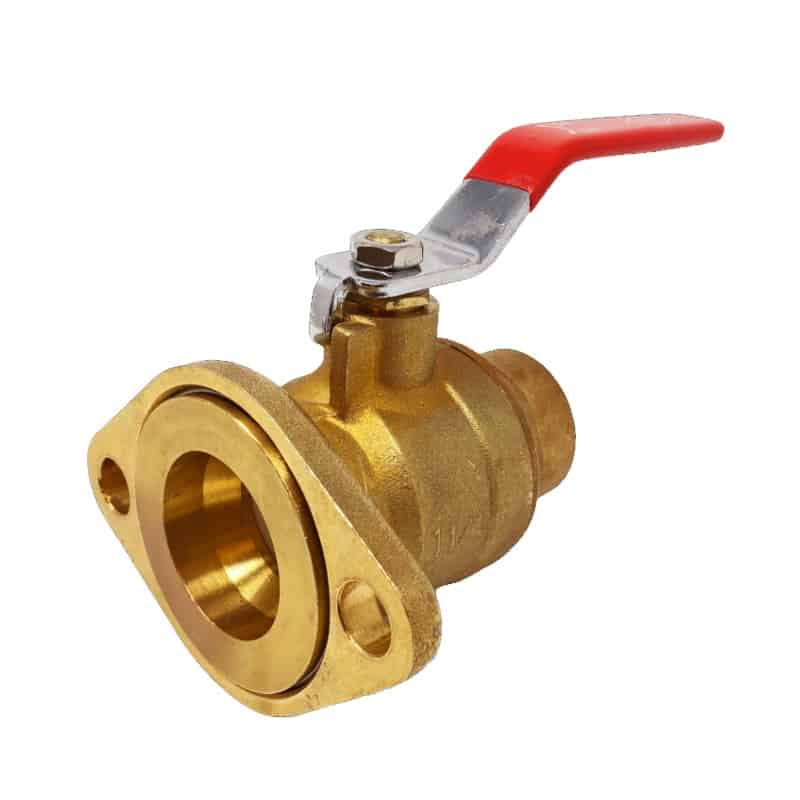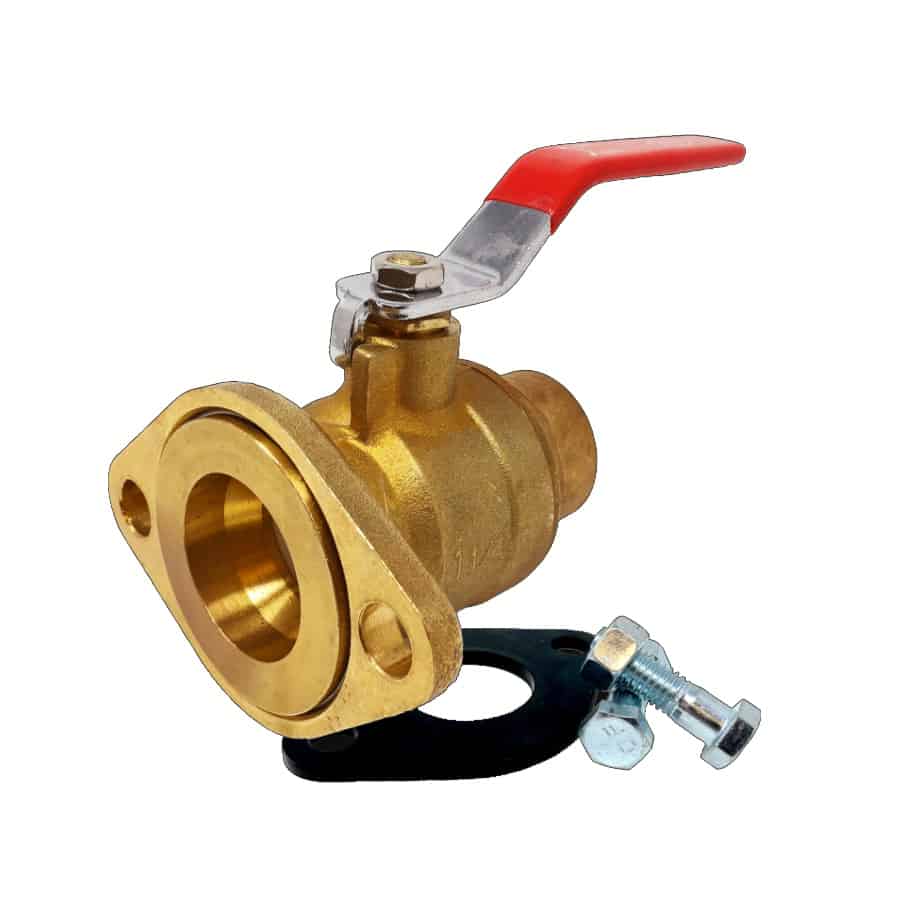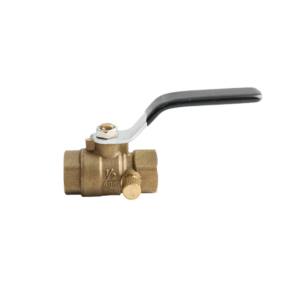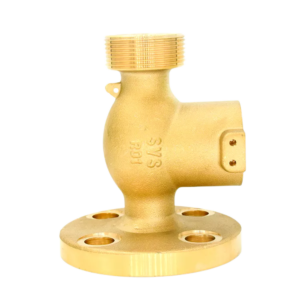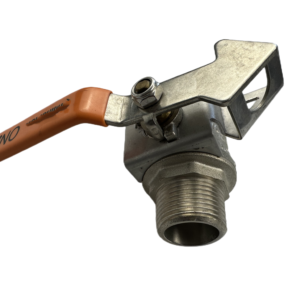Description
Flanged Brass Isolation Valve
JX-0441
DN20
A brass isolation valve with a flange is one of the most critical components of any fluid control system. A liquid or gas flow inside a pipeline may be halted or regulated easily with its assistance. Bolting between two pipe flanges, high-strength designs approach the valve ends to provide a dependable and secure seal from the inside out.
Because of their outstanding mechanical capabilities, corrosion resistance, and sturdy features, most of these valves are made of brass, mostly copper and zinc alloy. Isolation valves made of flanged brass provide flexibility and reliability for most of the criteria applicable to industrial and residential applications.
Main Parts:
The major parts that comprise a flanged brass isolation valve include:
- Body: The main housing, typically brass, holds the internals.
- Bonnet: The cap that gives access to the internals.
- Stem: The rod that moves the valve mechanism by the handle or actuator.
- Disk: The moveable piece that can open or close the valve depending on the isolated valve type.
- Seat: The sealing surface the disk/gate/ball seals against to shut off flow.
- Flanges: These are flat, projecting rims and can bolster the valve onto the pipeline.
Why Is Brass Used for The Production of Flanged Isolation Valves?
It is associated with maintaining efficacy in various environments, including water, oxygen, and specific compounds, and possesses a high level of corrosion resistance. In addition, it is ductile and possesses an exceptional capacity to conduct heat, rendering it advantageous for applications that experience temperature changes.
Additionally, brass is capable of being machined and cast into a variety of valves. Also, this material can resist high pressure and mechanical stress, thus ensuring the valves have a long service life.
Design and Appearance of Flanged Brass Valve

The appearance of the flanged brass isolation valve is distinct in its function. The smooth, luminous finish on the valve’s body reveals a characteristic golden polish that signals the brass content. The machining of the flanged ends allows seamless closure and precise mating to pipeline flanges. Actuators or handles are fabricated in rigid plastic or metal designed to rotate quickly.
The design is robust and reliable, and all the components provide maximum efficiency to achieve the best possible life. Brass valves have an elegant and, at the same time, helpful appearance due to their color and brightness.
Surface Treatment
Surface treatments are indispensable for improving the performance and extending the lifespan of flanged brass isolation valves. Polishing, plating, and coating are the most frequently employed procedures. Polishing is used to eliminate surface imperfections.
They may possess clear and sleek finishes. They can be further plated with nickel or chromium to enhance their appearance and corrosion resistance. Protective layers like epoxy or particle coating are implemented in extreme environmental conditions. These surface treatments guarantee valves maintain their functionality and integrity for an extended period, even in the most demanding applications.
Durability Features of Flanged Brass Isolation Valves
The combination of brass’s inherent properties and robust construction ensures these valves perform consistently under high-stress conditions. Below is a chart summarizing the durability features:
| Feature | Range |
| Temperature Range | -10°C to 120°C |
| Pressure Range | Up to 16 bar (1600 kPa) |
| Corrosion Resistance | Excellent |
| Mechanical Strength | High |
Applications of Flanged Brass Isolation Valves

Flanged brass isolation valves have various uses in industries because of their versatility and reliability. They are used in plumbing to control water flow in residential and commercial buildings. They regulate heating and cooling fluids in HVAC systems.
The oil and gas industry uses them to control hydrocarbons. Other uses are in chemical processing, manufacturing, and water treatment plants. Because they bear high pressure and temperature variation, they are suitable in those most critical applications where reliable flow control is essential.
Why Choose Plumberstar Flanged Brass Isolation Valves
Plumberstar offers unparalleled flanged brass isolation valves because of their quality and exceptional performance. High-grade brass, combined with advanced manufacturing techniques and additional quality control procedures, ensures the creation of each valve to the best standards. Our flanged brass isolation valves are highly corrosion-resistant and bear high-precision machining with rigid construction.
Different customization options concerning specific applications are also possible. Besides customer support, the company has also given detailed technical documents that enable customers to pick and implement the correct valve for their requirements. With Plumberstar, reliable and long-lasting performance can be guaranteed for every fluid control application.
FAQs
What Is Brass Used For In Isolation Valves?
Brass finds its application in isolation valves due to its corrosion-resistant, durable, high-temperature, and pressure-resistive capacities. This material has a long service life and will not readily rust like other metals, making it very suitable for use with water and gas. Another benefit of brass valves is that they are easily machined; hence, the precision in manufacturing ensures reliability and performance.
Are The Flanged Brass Isolation Valves By Plumberstar Lead-Free?
Yes, the flanged brass isolation valves from Plumberstar are made from brass and are free of any lead content, from raw material sourcing and processing to finished products. They are in line with the highest safety and environmental protection standards. For this reason, they are suitable for any installation relative to potable water systems without fearing lead contamination that could harm human health.
Would These Valves Handle High-Pressure Applications?
Yes, our flanged brass isolation valves are designed for high-pressure applications. They are designed to provide an extremely tight seal and firm performance in demanding conditions; hence, they fit residential and industrial applications in which high-pressure systems are standard.
How Do I Select The Suitable Flange Brass Isolation Valve
Properly selecting a flanged brass isolation valve will depend on pipeline size, pressure, and fluid temperature, among other factors that meet specific application requirements. You can discuss this with our technical team at Plumberstar to find a suitable valve for your needs and ensure compatibility and reliable performance.
Are These Valves Suitable For Hot And Cold Water Systems?
Our flanged brass isolation valves have been designed to perform outstandingly under hot and cold water systems. Their construction in brass gives them excellent thermal stability, hence allowing the endurance of different temperatures without affecting the integrity of the valve.
